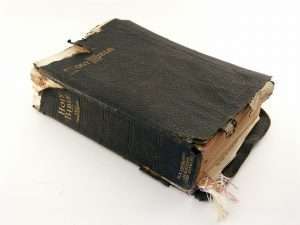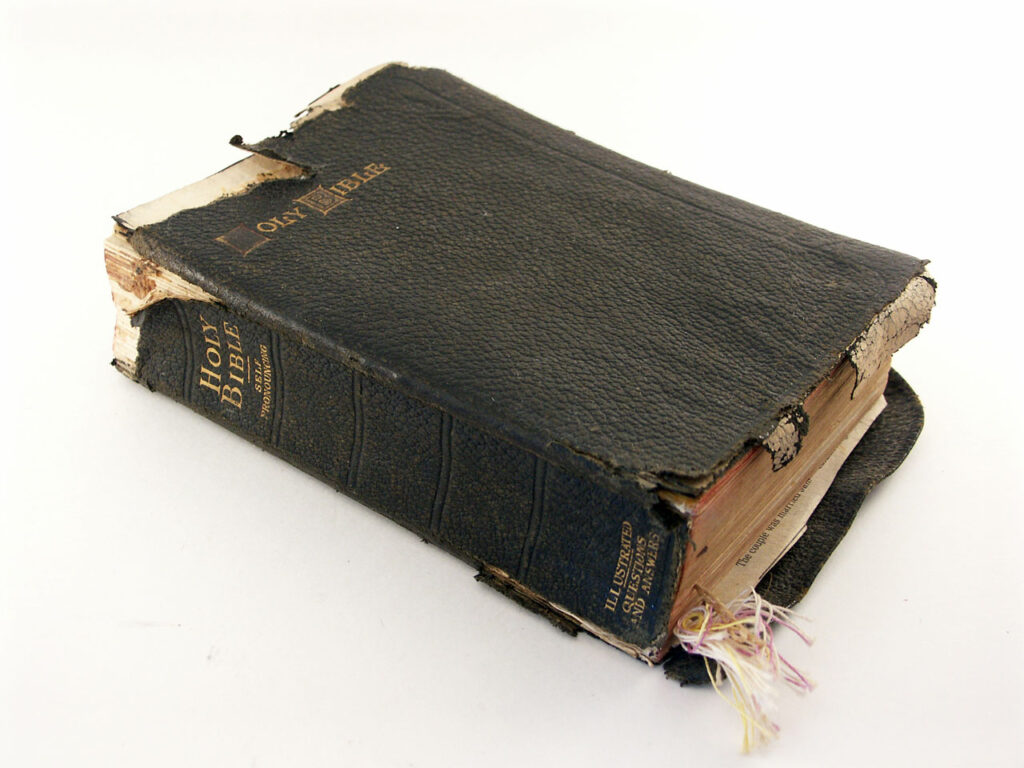 Have you ever heard someone say, “You can’t trust what the Bible says. It is thousands of years old, and it has been changed many times over the years. Some of it may be true, but you know there have to be a lot of mistakes in it after all this time?”
Have you ever heard someone say, “You can’t trust what the Bible says. It is thousands of years old, and it has been changed many times over the years. Some of it may be true, but you know there have to be a lot of mistakes in it after all this time?”
That question is important. If part of the Bible has mistakes in it, and has man-made additions that are not from God, then there would be no way to know if anything at all in the Bible is true. If we are left to our own opinions about what is true and what isn’t true in the Bible, then we become the ultimate authority. We become judges of the Bible instead of letting the Bible be our judge. The Bible itself says that, “All Scripture is inspired by God …” (2 Timothy 3:16), and that, “The law of the Lord is perfect…” (Psalm 19:7). It is a package deal. Either the entire Bible is God’s Word or none of it is.
How can we know if the Bible we have today accurately reflects what was originally written thousands of years ago?
The Jewish scribes who copied the Old Testament part of the Bible did it very carefully. In fact, the painstaking way they did it gives us a lot of confidence. One Bible scholar, Dr. Lehman Strauss, reminds us that, “The scribes who copied Hebrew manuscripts were keenly aware of the fact that they were handling a sacred and precious revelation. They were trained to exercise the greatest care. They counted not only the words but the letters [fusion_builder_container hundred_percent=”yes” overflow=”visible”][fusion_builder_row][fusion_builder_column type=”1_1″ background_position=”left top” background_color=”” border_size=”” border_color=”” border_style=”solid” spacing=”yes” background_image=”” background_repeat=”no-repeat” padding=”” margin_top=”0px” margin_bottom=”0px” class=”” id=”” animation_type=”” animation_speed=”0.3″ animation_direction=”left” hide_on_mobile=”no” center_content=”no” min_height=”none”][on each sheet], making note of how many times each particular word and letter occurred. If an error was detected, the entire sheet would be destroyed and the scribe would begin again.”
The New Testament part of the Bible was written more recently. There are approximately 5,500 ancient copies of the New Testament still in existence today. Not only that, but scholars also have between 18,000 and 25,000 ancient translations of those manuscripts. This is far more than we have for any other ancient book. This is very important because by comparing all of these manuscripts, it is easy to find any errors that may have happened during the copying process. Since over 80% of the copies all say the exact same thing, we can be very certain that the Bible we have today is accurate.
Since the Bible is a supernatural book, it cannot be destroyed or discredited. H. L. Hastings said, “If this book had not been the book of God, men would have destroyed it long ago. Emperors and popes, kings and priests, princes and rulers have all tried their hand at it; they died and the book still lives.” For example, in AD 303 the Roman Emperor Diocletian ordered that all Bibles be rounded up and burned. Instead, Diocletian died, and within 25 years, the next emperor ordered that 50 copies of the Bible be made at the government’s expense.
Centuries later, the French skeptic Voltaire claimed that within 100 years, the Bible would be forgotten and Christianity would disappear. But Voltaire died in 1778, and within 50 years of his death, the Geneva Bible Society was in his house, using his press to print Bibles!
Experts have written volumes of information that point to the Bible as a supernatural book. I’ve shared just a few of them here. Contact me if you would like help finding out more about how reliable the Bible really is.
A biology teacher held up a small seed in her hand so the class could see it and said, “I know the proportionate chemical elements in this seed – it is hydrogen, carbon, nitrogen and so forth. If I made a seed of identical chemical properties and planted it, it would only be absorbed in the soil. But, if I plant this seed in good soil, it will become a plant.”
When you plant God’s Word in your heart, you plant a powerful seed. The Bible is old, but it continues to change lives today. It is so powerful that it can give life. It tells us, “Forever, O Lord, Your word is settled in heaven. Your faithfulness continues throughout all generations. . . .” (Psalm 119:89-90). I am so thankful that the Bible has changed my life. It can change your life, too.[/fusion_builder_column][/fusion_builder_row][/fusion_builder_container]

